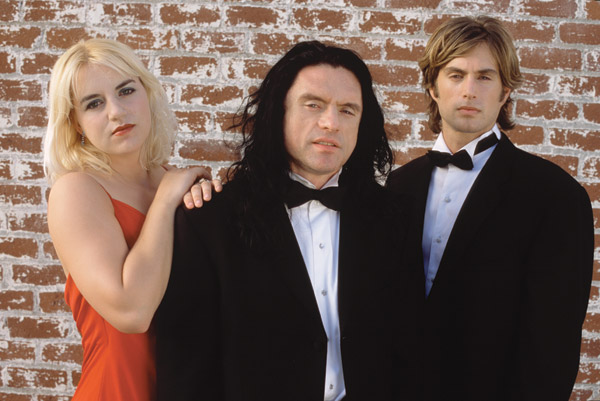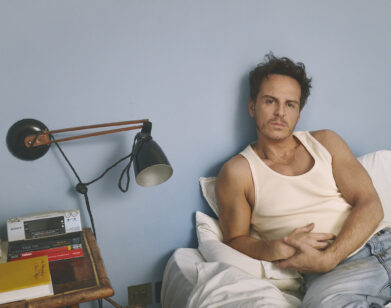Tommy Wiseau Knows Better

If it’s been a while since you’ve seen a really awful movie, you may think you’ve done yourself a favor—until you watch The Room. Sometimes referred to as the Citizen Kane of bad movies (a genre that includes such classics as Troll 2 and Birdemic), Tommy Wiseau’s 2003 cult film will celebrate its one-year anniversary of midnight screenings in New York with a sold-out show this Friday, April 30, at the Ziegfeld Theatre.
Legions of kitsch devotees flock to monthly midnight screenings in order to laugh, boo, cheer, and pelt the screen with plastic spoons (an homage to a painting of a spoon on the protagonist’s wall). They’re drawn by the melodramatic love triangle on which the film centers, the significant number of trite devices introduced and abruptly abandoned in the course of the (for lack of better word) narrative—including but not limited to alleged domestic violence, drug use, cancer, orphans—and an aesthetic so cheesy that one might generously compare it to a boudoir setting in a low-budget, soft-core porn flick.
The absurdity of The Room and the experience of its viewing are exceeded only by the person responsible for its creation, Wiseau, and his delusions of grandeur. An enigmatic man with stringy black hair, a face that seems to be crafted from Play-Doh, and a thick, mysteriously foreign accent, Wiseau has only the highest opinion of his film, boasting that “it’s totally different cookie-cutter from Hollywood.” He takes pains to assure any misguided fans that he’s only human: “I’m not a god, I’m just a simple guy.” In spite of the media’s “butching on” his magnum opus, Wiseau holds firm in his belief that he has done the world a tremendous favor. The film not only contains symbols of many crucial aspects of our culture, “it is the real world – issues of drugs, issues of football,” but is also, Wiseau muses, essentially an act of public service: “I personally think that The Room eliminates partially crime because people spend time in the theater.”
Saturation Films’ George Gross, the organizer of The Room‘s anniversary showing, takes a slightly less lofty view of the film’s merits: “I’m not too philosophical about it; my interest is based in pure joy.” Gross’ involvement with the movie quickly progressed from watching brief clips of the movie at work to bargaining with Wiseau for the 35-mm print over 4 AM sandwiches at Los Angeles’ Canter’s Deli. Long a hit in L.A., the monthly midnight screenings at the Village East Cinema in New York that Gross started a year ago have been an enormous success and are quite an experience. Comedians perform (David Cross did a question-and-answer session in character as Wiseau last summer); celebrities attend (Cameron Diaz showed up for the second time after the premiere of My Sister’s Keeper); mockumentary videos of The Room are shown; footballs are tossed in the aisles, audience members recite the lines in screams, and, Gross says, “one dude even threw his cell phone at the screen once.”
Friday night’s screening at the Ziegfeld, the largest collection of people ever assembled to view The Room, should be no different. Wiseau will be in attendance, comedians Kurt Metzger and Jack Edwards will assist with hosting duties, a collection of horns will accompany the (vomit-inducing) sex scenes, spoons will rain down on those in the front rows, beer will be sold. The atmosphere of these showings only adds to the point of watching The Room–that is, sheer and unadulterated entertainment. In the words of the masterful Mr. Wiseau, “Entertainment is for laughing. But at the same time, if you don’t want to laugh, don’t get upset… If you want to throw a spoon, play football, why not?”






